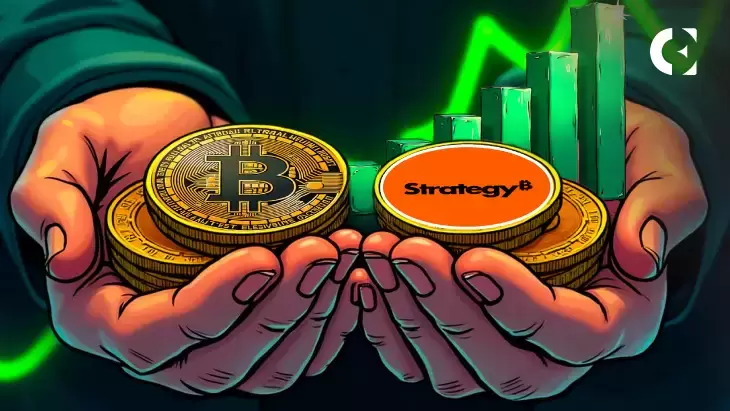 |
|
 |
|
 |
|
 |
|
 |
|
 |
|
 |
|
 |
|
 |
|
 |
|
 |
|
 |
|
 |
|
 |
|
 |
|
2025年3月17日,韩国银行对在储量中增加比特币的可能性发表了第一个评论。

On Mar. 17, 2025, the Bank of Korea made the first comment about the possibility of adding Bitcoin to its reserves. According to the statement, the central bank of the Republic of Korea is not interested in acquiring Bitcoin, and it has never been.
2025年3月17日,韩国银行对在储量中增加比特币的可能性发表了第一个评论。根据声明,大韩民国中央银行对购买比特币不感兴趣,而且从未有过。
Earlier this March, South Korea’s Democratic Party was urged to request the Bank of Korea to explore the potential of adding Bitcoin to its reserves following the move made by the U.S. government.
今年三月早些时候,敦促韩国民主党要求韩国银行在美国政府采取的行动后探索将比特币添加到其储备中的潜力。
The response from the Bank of Korea was negative. The main reason for the lack of interest is high volatility. According to the statement from the central bank’s rep, the BTC price trajectory can be compared to a roller coaster. As there is a potential for a price decline, Bitcoin cannot guarantee that it will provide an expected value in Korean won at any given moment. The reserve asset should be available and immediately usable by request, and it is denominated in a currency with a high credit rating. Bitcoin doesn’t meet the criteria for the reserve asset.
韩国银行的反应是负面的。缺乏兴趣的主要原因是高波动性。根据中央银行代表的声明,可以将BTC价格轨迹与过山车进行比较。由于价格下降的可能性,比特币不能保证它在任何给定时刻都会为韩国赢得的预期价值提供。储备资产应可用并立即根据请求使用,并以高信用等级的货币计价。比特币不符合储备资产的标准。
On top of this explanation, the Bank of Korea cited the reluctance of other countries to adopt Bitcoin as the national reserve fund. According to the bank’s statement, although Brazil and Czech had a positive experience of adding Bitcoin to their respective reserves, the European Central Bank, Switzerland, Japan, and others gave a negative assessment of the idea of using Bitcoin as a reserve fund.
除此之外,韩国银行列举了其他国家不愿采用比特币作为国家储备基金。根据该银行的声明,尽管巴西和捷克人有积极的经验在各自的储量中增加比特币,但欧洲中央银行,瑞士,日本等人对使用比特币作为储备基金的想法进行了负面评估。
It shows that despite many talks about the global crypto race, many countries take a conservative stance on Bitcoin and don’t seem to be eager to compete with the U.S. and other Bitcoin-holding nations. Leaders of these countries don’t fear missing out on something related to Bitcoin.
它表明,尽管有很多关于全球加密竞赛的讨论,但许多国家对比特币采取了保守的立场,似乎并不渴望与美国和其他持有比特币的国家竞争。这些国家的领导人不怕错过与比特币有关的事情。
Crypto in South Korea
韩国加密货币
South Korea is one of the world’s largest economies and a crypto-friendly hubs. Crypto exchanges are legal and regulated there. Cryptocurrencies are not considered as money. The capital gains associated with crypto are free from taxation.
韩国是世界上最大的经济体之一,也是对加密货币的枢纽。加密交易所是合法的,并在那里受到监管。加密货币不被视为金钱。与加密相关的资本收益免于税收。
Before you come at South Korea, reminder the country imposes 0% capital gains tax in crypto so yeah they understand bitcoin pretty pretty well as well as the definition of a strategic reserve by the people, for the people
在您来到韩国之前,提醒该国在加密货币中征收0%的资本利得税,所以他们非常了解比特币,以及人民对战略储备的定义,对人民来说
In the context of political uncertainty and high unemployment rates, the youth in South Korea lean toward cryptocurrencies as an alternative source of financial independence.
在政治不确定性和高失业率的背景下,韩国的年轻人倾向于加密货币,这是财务独立的另一种来源。
More than that, the long-time public familiarity with micropayments (for instance, in social media and games) created a positive environment for embracing crypto. According to the 2021 survey, nearly 50% of Koreans in their 30s are crypto investors.
不仅如此,长期以来,公众对微付款(例如,在社交媒体和游戏中)为拥抱加密货币创造了积极的环境。根据2021年的调查,近30多岁的韩国人是加密货币投资者。
On top of that, South Korea is home to several vibrant crypto platforms, including Upbit, Bithumb, and HTX.
最重要的是,韩国是多个充满活力的加密平台的所在地,包括Upbit,Bithumb和HTX。
So, it is clear that the rejection of Bitcoin as a reserve asset is not a continuation of cryptophobic policies but rather a cautious approach by the generally crypto-friendly administration.
因此,很明显,拒绝比特币作为储备资产不是隐秘恐惧症政策的延续,而是普遍对加密货币友好的政府的谨慎方法。
Why do other countries reject the idea of a Bitcoin reserve?
为什么其他国家拒绝比特币储备的想法?
The governor of the Czech National Bank introduced a proposal to spend billions on Bitcoin in order to diversify the reserves. Following this, European Central Bank President Christine Lagarde said that Bitcoin is unfit for the ECB reserve as it lacks enough safety and liquidity.
捷克国家银行的州长提出了一项提议,要求在比特币上花费数十亿美元,以使储量多样化。此后,欧洲中央银行总裁克里斯汀·拉加德(Christine Lagarde)表示,比特币不适合欧洲央行预备役,因为它缺乏足够的安全性和流动性。
Japan rejected Bitcoin as it doesn’t align with the national reserve strategy. Price volatility and incompatibility with the existing financial frameworks were cited as the reasons. The Swiss central bank cited similar reasons for rejecting Bitcoin. Swiss National Bank (SNB) President Martin Schlegel called crypto “a niche phenomenon” and said that high volatility and low liquidity block Bitcoin from becoming a reserve asset.
日本拒绝比特币,因为它与国家储备战略不符。价格波动和与现有财务框架不兼容的原因是原因。瑞士中央银行引用了拒绝比特币的类似原因。瑞士国家银行(SNB)总统马丁·施莱格尔(Martin Schlegel)称Crypto为“一个利基现象”,并表示,高波动性和低流动性阻止比特币成为储备资产。
Crypto bulls cite other reasons for Bitcoin reserve rejection in these countries. They suggest that officials in these countries simply don’s understand what Bitcoin is and why its inclusion in the national treasury may potentially be game-changing.
加密公牛在这些国家提到了比特币储备拒绝的其他原因。他们建议,这些国家的官员只是明白比特币是什么,以及为什么其在国家财政部中的包容性可能会改变游戏规则。
Australian Reserve Bank governor Michele Bullock is a perfect example of such an official. In November 2024, she claimed that she didn’t understand Bitcoin but she didn’t see a role for it in the Australian economy or payment system.
澳大利亚储备银行州长米歇尔·布洛克(Michele Bullock)是这样一个官员的完美典范。在2024年11月,她声称自己不了解比特币,但在澳大利亚经济或支付系统中没有看到它的角色。
Other Bitcoin proponents suggest that countries like South Korea choose the wrong time to dodge Bitcoin. One of them wrote via X that “betting against Bitcoin in 2025 is like shorting the Internet in 2000.”
其他比特币支持者认为,像韩国这样的国家选择了错误的时间来躲闪比特币。其中一位通过X写道:“在2025年对比特币的投注就像在2000年缩短互联网。”
Interestingly enough, the long-anticipated creation of the U.S. Strategic Bitcoin Reserve didn’t ignite the crypto market, nor did it set an immediate chain reaction in the world. Michael Saylor’s speeches explaining how important it is for any leading country to hold Bitcoin sound brilliant for some, but many conservative central bank officials around the globe are not buying them as they have strict criteria for the reserve assets, and Bitcoin doesn’t align with it. They don’t take the unique characteristics of Bitcoin into consideration.
有趣的是,美国战略比特币储备的长期以来的创造并没有引起加密市场的启动,也没有在世界上产生直接的连锁反应。迈克尔·塞勒(Michael Saylor)的演讲解释了任何领先国家对某些人保持比特币听起来很出色的重要性,但是全球许多保守的中央银行官员都没有购买它们,因为它们对储备资产的严格标准,而比特币不一致。他们不考虑比特币的独特特征。
Such a stance paints the U.S. government and other Bitcoin-leaning nations as risk-takers. Time will show which approach was justified.
这样的立场将美国政府和其他倾向比特币的国家描绘为冒险者。时间将表明哪种方法是合理的。
免责声明:info@kdj.com
所提供的信息并非交易建议。根据本文提供的信息进行的任何投资,kdj.com不承担任何责任。加密货币具有高波动性,强烈建议您深入研究后,谨慎投资!
如您认为本网站上使用的内容侵犯了您的版权,请立即联系我们(info@kdj.com),我们将及时删除。
-

-

- Hedera(HBAR)从七周的下降趋势中恢复,目标为0.20美元
- 2025-04-21 19:20:13
- Chaikin货币流(CMF)指标显示了改进的迹象,最近进入了零线以上的正区域。
-

-

- 尽管价格低落
- 2025-04-21 19:15:14
- Dogecoin(Doge)社区刚刚在4月20日或4/20庆祝了Doge Day,也称为D日。但是,类似于硬币以前对该活动的接待,其价格动作仅为轻度
-

-

-

-

- Solana与Ethereum的价格比(SOL/ETH)触动惊喜
- 2025-04-21 19:05:12
- 随着比率进一步撤退,反映了交易者犹豫,这种最初的兴奋迅速消失了。
-


























































